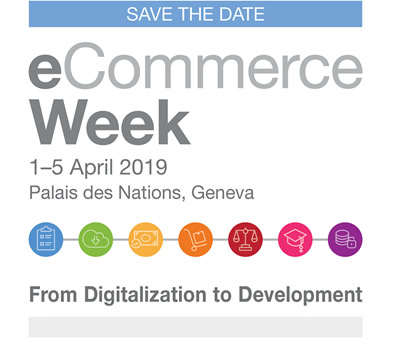Investment and funding situation for e-commerce value chain in developing countries
2 Apr 2019 10:00h - 11:30h
Event report
The session considered the reality of different countries such as Argentina, Brazil, and Bangladesh and how e-commerce may be improved in developing countries.
The moderator, Mr Mostafizur Rahaman (Convener Basis E-Commerce Alliance), began the session by addressing the main issue of funding with e-commerce companies. Due to difficulties with funding, many of these companies do not survive longer than two years. After this brief introduction, the first panellist, Dr Kati Suominen (CEO of Nextrade Group), spoke on the research she has done on the challenges of financing small and medium sized enterprises (SMEs), and on the policy ideas that can aid in this issue. Smaller businesses tend to confront more challenges with global commerce than do bigger companies. Most of these challenges relate to accessibility to capital, more specifically to trade finance, working capital, and early-stage funding; which presents a multifaceted issue where many solutions are needed. Dr. Suominen touched on three policy ideas that could be implemented to address these issues. They include, first, digital transformation for trade funds to support SME exporter adoption of e-commerce capabilities. Her second policy idea is a government guarantee on small working capital loans issued by FinTechs. If governments show support in this area, it could lower the cost of capital and expand the number of borrowers. Finally, she advocated fund-of-fund to boost equity for exporters so that more SMEs could scale international sales.
The rest of the session was dedicated to the representatives of developing countries to share their realities. Ms Lorena Mariel Diaz Quijano (consultant and board member of Vital Voices Global Partnership E-commerce Institute) representing Argentina focussed on women in the supply chain. She presented the audience with statistics to indicate that women are a large contributing part of the supply chain. However, of the investments in e-commerce, less than 10 percent are for women. To help e-commerce, SMEs need training in digital marketing, in digital platforms, in customer service, and in management; this shows that more than just software development is needed in this area. To conclude her presentation, Diaz Quijano suggested that there should be a focus on helping women to develop software; this will provide them with an opportunity within the e-commerce value chain.
Mr Syed Mohammad Kamal (country manager of Bangladesh Mastercard), the representative of Bangladesh, highlighted the importance of e-commerce in daily life. Even though Bangladesh is one of the fastest growing economies and is soon to be known as a developing country in the year 2020, banking participation in e-commerce is very low. Most of the investments in e-commerce come from abroad, so the private sector has been trying to work with the banks to provide guidelines for investing in e-commerce. As recently as January of this year, Bangladesh passed a policy on digital technology, so the private sector is taking the opportunity to focus on e-commerce legislation. After this, the next step will be to explore the budget on future bank investments as a way to increase investments.
Brazil’s representative, Mr Tiago Baeta (E-Commerce Brasil CEO & Founder) began with a brief introduction to how Brazil is currently doing. Baeta believes that the support for e-commerce in Brazil needs to come from three groups, the government, investors, and FinTechs. Currently, there is little federal credit or funding specifically targetting e-commerce. There are some isolated state initiatives such as the Parana government funding for small and medium business. As a result, the main source of funding is investors. In the first half of 2010, almost every growing e-commerce had investors funding their operations. This changed during the second half of 2010 when Brazil experienced economic hardship; as a result, most investors left e-commerce. Currently small businesses have difficulties finding funding. Recently, within the last three years, FinTechs in Brazil have been operating the same way banks do, allowing for more activity. Since government and private investors have not shown much support for e-commerce in Brazil, SMEs are now depending on FinTechs to finance their operations. This will play a greater role in the global economy in the future.
By Jainee Feliz-Cabrera
Related topics
Related event

eCommerce Week 2019: From Digitalization to Development
1 Apr 2019 15:45h - 5 Apr 2019 15:45h
Geneva, Switzerland
